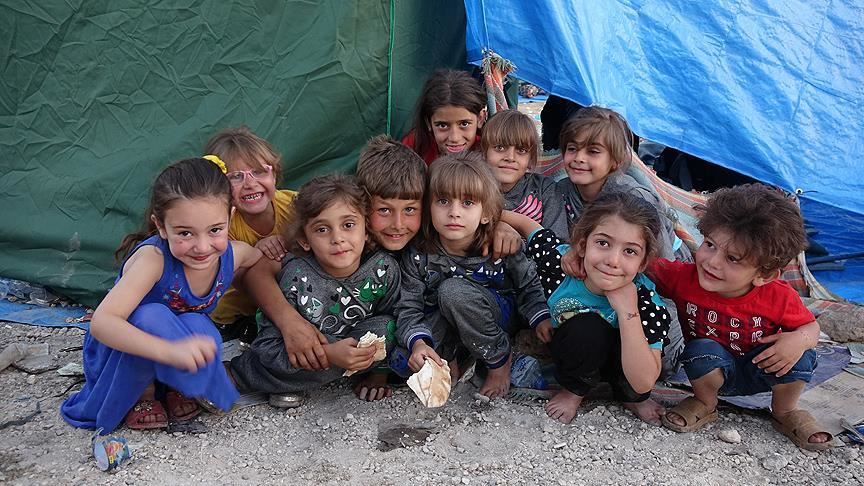Family planning services crucial for Syrian migrants: expert
Academician says family planning experts must learn effective communication with Syrian families
 file photo
file photo
ANKARA
Now exceeding 3.6 million in number, the Syrians living in Turkey need professional guidance on family planning, according to a clinical psychologist from Turkey's Bilkent University.
Speaking to Anadolu Agency, Nedret Oztan said it was vital that proper care and education be provided for each and every Syrian child now living in Turkey, with many now not having lived in any other country as civil conflict in their own homeland nears its ninth year.
However, family planning experts should first learn how to communicate well with Syrian families, before pushing them to have fewer children, she said.
"We need to know more about the Syrians living in Turkey," Oztan said, adding: "Because it is not the most effective way just to tell people from different cultures what they should do."
Pointing out that many different groups existed among Syrian migrants, she underlined that one approach could be accepted by some but rejected by others.
"Thus, we need to properly understand these different groups' cultures, strong and weak sides," Oztan said.
Although the authorities are trying to do their best on family planning, she said additional studies would be needed in the future.
"Migrants may develop a defense mechanism against external guidance.
"Even if what we want to do has a very positive outcome for everyone, they may see our efforts as a desire to change them," Oztan said.
According to Turkey's Interior Ministry, more than 400,000 Syrian babies have been born in Turkey since the start of the Syrian civil war in 2011.
Currently, Turkey hosts more than 3.6 million Syrians, making it the largest migrant-hosting country.
Birth control
Oztan underlined that different norms and beliefs existed among different peoples, all of which must be respected.
Though educational programs are held at health centers and camps where migrants are living across Turkey, she said Syrian women were still not very familiar with contraceptives.
"Birth control is not common, as the initiative here is in the hands of men rather than women," Oztan said.
With many Syrians viewing birth control as an illicit practice, she added: "Without understanding their morals, shaking our finger at them may cause backlash."
Oztan suggested a step-by step method, first approaching the most open individuals, and then moving on to families more closed to the outside.
"We can select community leaders, and educate them to raise awareness.
"Thanks to these leaders, we can ensure that the methods we propose are applied by more people," Oztan said.
According to the UN's Population Fund (UNFPA), 200 million women who want to avoid pregnancy are unable to use effective family planning methods, for reasons ranging from lack of access to information or services to lack of support from their partners or communities.
Cultural acceptance
Oztan, who also works with Turkish officials on refugees, underlined that birth rates were not likely to drop over the next few decades.
She identified various social customs prevalent within the Syrian community such as polygamy and early marriage, as well as religious beliefs encouraging child bearing result in higher birth rates, with some families having 9-10 children.
"Some families we interviewed in the field see others with two to three children as bizarre," Oztan said.
Touching on the migration life in Turkey, Oztan said the Syrians were contented with the opportunities and services Turkey has provided for them over the years, though some couples who believe that they can take care of children give birth anyway, no matter what the circumstances are.
"People able to escape harsh war conditions turn out to be strong, because they learned how to survive.
"On the one hand they experience high levels of anxiety and stress, on the other hand they are hopeful about the future," she said.
"Long-term plans are not common among migrants, as they are primarily concerned with their current conditions and the very near future," Oztan added.
*Muhammed Ali Gurtas contributed to this report from Ankara
Giving birth during war: Syrian mothers
Anadolu Agency website contains only a portion of the news stories offered to subscribers in the AA News Broadcasting System (HAS), and in summarized form. Please contact us for subscription options.







